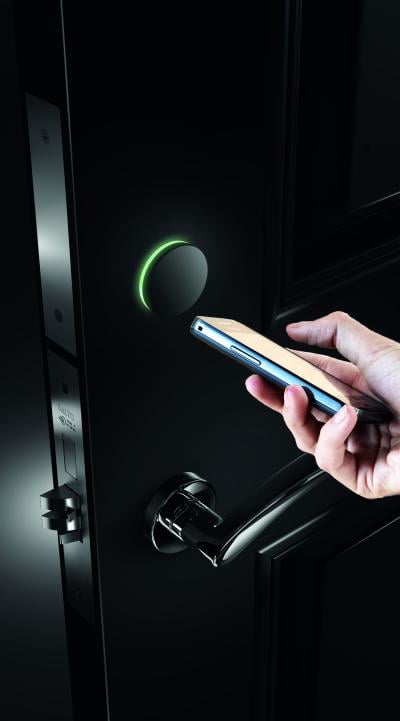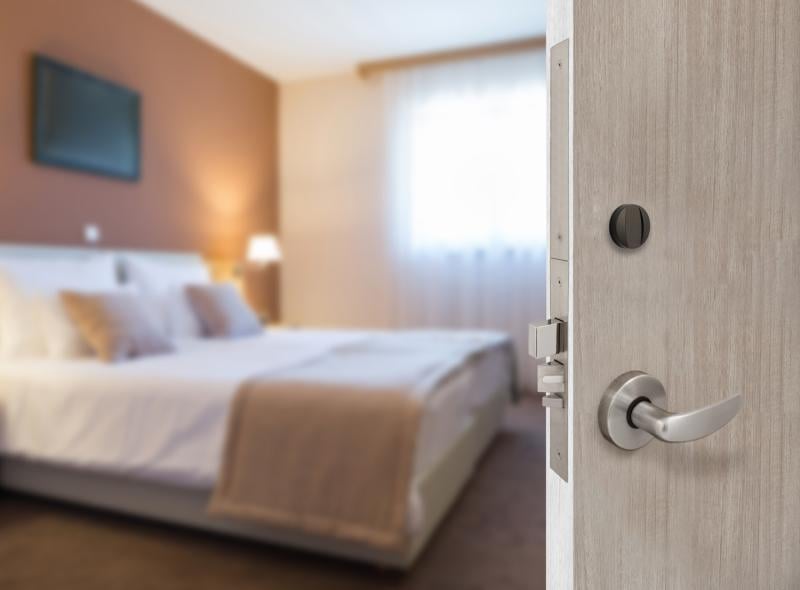As the hotel industry prepares for what 2022 will bring, guest safety and security is at the forefront. To guarantee the successful rollout of contactless digital key services, door lock providers are expanding the flexibility and capabilities of their solutions to address a range of unique property needs and guest service preferences.

For example, digital key platforms can be capable of either integrating with a hotel’s existing mobile app or can serve as a standalone solution, said Nicolas Aznar, president, Americas at Assa Abloy Global Solutions. “Yet more advanced solutions can now provide guests with a third option to using and storing digital keys that does not even require the opening of a separate app,” he said. “Guests using this third option can effortlessly store guestroom digital keys alongside other digitalized items such as airplane boarding passes. By providing guests with greater control and choice over how they wish to interact with a hotel’s digital key service, such platforms can more readily ensure that each guest experiences enhanced convenience while also boosting overall adoption rates.”
Other smart door innovations will look much different moving forward. Recently, Apple opened its Wallet app for some hotels to share keyless options, said Beth Kahwajy, North America vertical business leader for hospitality at Salto Systems. “There will be additional integrations to a powerful wave of digital disruptions in the hospitality ecosystem to help with not only digital keys but service at the hotel, reservations, food delivery and more,” she continued.
Jacob Liggett, OpenKey’s VP of sales and marketing, said that while near field communication technology isn’t new, Hyatt Hotels Corp.'s pilot of mobile keys in Apple Wallet is bringing new light to the technology. “It does open up a lot of exciting features, new reporting structures, and applications,” he said. “It’s definitely the most exciting thing coming in 2022.”
Since the pandemic started, there has been an increased acceleration toward all things digital. Things like digital keys and remote access were nice to have in before times, said Fayyad Sbaihat, president of Onity, but now they are an imperative. “It minimizes the touchpoints that the customer has to have coming into the hotel,” he said. “It’s also lowered the number of tasks that the front desk clerk has to do with the check-in process, which is vital with the staff shortage. Hoteliers are reaching out on how to implement this type of architecture in their properties.”
Other significant lock innovations in 2022 will allow for better interface potential with multiple management systems, such as temperature control, mobile key applications, guest payment and location tracking so that hotels can provide a premier guest experience with fewer staff, said David Ginn, VP of sales, hospitality North America at dormakaba. “Mobile will play an ever-increasing role in this outcome,” he continued. “Our job is to future-proof door lock technology to meet both identified and future needs of that guest journey.”
How Mobile Key Adoption is Going
Since their initial launch, mobile key technologies have enjoyed impressive adoption rates and were already being implemented as a service standard by several major hotel brands, Aznar said. This was simply due to the technology being ideal to address rising demands for mobile-based experiences and instantly convenient self-service.

“With the onset of the pandemic, mobile key adoption rates exploded as industry professionals identified the unique advantages that such platforms offer in creating contactless experiences from the moment that a guest arrives,” he said. “By not only removing the need for guests to visit the front desk but also minimizing exposure to shared surfaces, digital key platforms now form a central requirement in enhanced cleanliness initiatives for many hotel brands and independent properties around the world.”
Kahwajy agreed that while the conversation is not new, she has seen a tremendous increase in the adoption rate in the past two years. “It has to do with guests wanting less interaction with others and less touch points in a hotel,” she said. “Guests still want to travel and there has been an increase in both domestic and international travel. I think hotels going digital is helping. Mobile technologies allow guests the power to manage check-in as well as additional aspects of a hotel stay from their smartphone. Guests can avoid lines at the front desk and check in directly.
“Additionally, staff members can manage visitor keys to take advantage of digital technology to optimize guest satisfaction and the staff experience and improve overall operations.”
The adoption rate is increasing based on anecdotal research, according to Ginn. “Prepandemic, we estimate that 25 to 30 percent of chain loyalty members used mobile keys regularly,” he said. “The pandemic appears to have accelerated this. For properties who have promoted mobile rates, adoption has been 35 to 40 percent. We’re starting to see a lot of non-branded properties looking to deploy a mobile solution as well, particularly upper-end properties.”
